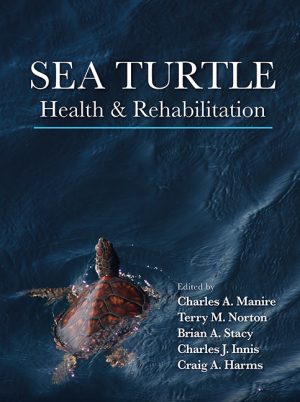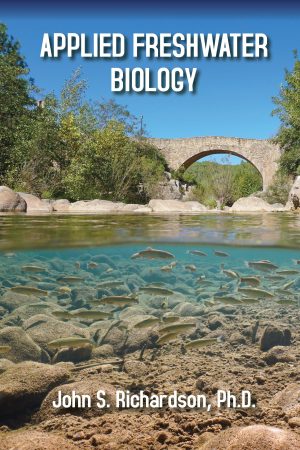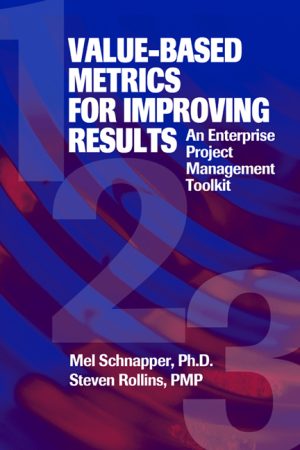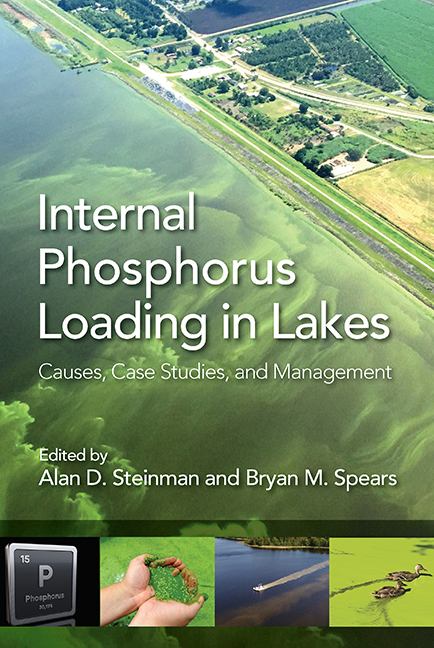Internal Phosphorus Loading in Lakes
$89.95
Causes, Case Studies, and Management
Alan D. Steinman and Bryan M. Spears
Hardcover, 7×10, 464 pages
ISBN: 978-1-60427-144-7
January 2020
Description
Nutrient enrichment of lakes is a ubiquitous problem, impacting ecological and human health on a global scale by accelerating the pace of eutrophication, often resulting in algal blooms, depleted dissolved oxygen concentrations, and economic harm to surrounding communities. In many lakes, bed sediments are a major but unrecognized source of phosphorus to the water, a process known as internal phosphorus loading. Internal loading is notoriously difficult to measure and manage given the need to access processes operating on and within the lakebed. In addition, climate change threatens to promote internal loading. For example, warming of lakes can increase the release of phosphorus from sediments due to 1) longer and stronger periods of lake stratification resulting in sediment anoxia and 2) enhanced microbial decomposition of organic matter. Degraded water quality not only impairs ecological health but also can influence social pride and community morale. This is the first book dedicated to the understanding of internal phosphorus loading in lakes and examines the causes, the ecological and societal impacts, and options for managing this complex phenomenon.
With contributions from leading experts, this edited volume provides a broad view of internal phosphorus loading, methods for measurement, management practices for water quality improvement, case studies from around the world, and recommendations for addressing this growing concern. It is essential reading for environmental and engineering professionals involved in lake and reservoir management, students and faculty in limnology, state and federal authorities involved in water quality regulation, and lakefront homeowners and management boards interested in maintaining lake water quality and managing algal blooms.
Key Features
- First-ever comprehensive volume on internal phosphorous loading that clearly details what it is and why it occurs
- Identifies and explores the drivers of internal phosphorus loading
- Provides methods, techniques, and models for measuring internal phosphorous loading
- Features over 150 color figures and photographs to illustrate important concepts and procedures
- Includes 17 detailed case studies written by experts from around the world to highlight key research principles, treatment options, and management strategies for major lakes affected by internal phosphorus loading
About the author(s)
Alan Steinman, Ph.D., is the Director of Grand Valley State University’s Annis Water Resources Institute, a position he has held since 2001. Previously, he was Director of the Lake Okeechobee Restoration Program at the South Florida Water Management District. Steinman has published over 175 scientific articles, book chapters, and books; has been awarded over $55 million in grants for scientific and engineering projects; and has testified before the U.S. Congress and the Michigan and Florida state legislatures.
Among his awards are Phi Beta Kappa, the 2017 Award of Excellence from the National Garden Clubs, the U.S. Army Corps of Engineers Outstanding Planning Achievement Award, the Joan Hodges Queneau Palladium Medal from the National Audubon Society, Paul Harris Fellow, Keiser Distinguished Lecturer in Life Sciences from Ohio Northern University, and the Patricia B. Johnson Award for Leadership and Innovative Grantmaking from the Community Foundation for Muskegon County.
Al is a member of science advisory boards for the U.S. EPA, the International Joint Commission, Michigan DEQ, Sea Grant, Healing our Waters, University of Michigan’s Water Center, and the Cooperative Institute for Great Lakes Research. He currently serves as Associate Editor for the journal Freshwater Biology and has served on the State of Michigan’s Groundwater Conservation Advisory Council and Phosphorus Advisory Committees. Steinman’s research interests include aquatic ecosystem restoration, harmful algal blooms, phosphorus cycling, and water policy.
His current community service includes serving on the Board of Directors of Goodwill International of West Michigan, the Community Foundation for Muskegon County, and the West Michigan Symphony. Prior board service included the Michigan Chapter of The Nature Conservancy, the Land Conservancy of West Michigan, and Congregation B’Nai Israel.
Dr. Steinman holds a Postdoctoral Research Fellowship from Oak Ridge National Laboratory, a Ph.D. in Botany/Aquatic Ecology from Oregon State University, an M.S. in Botany from the University of Rhode Island, and a B.S. in Botany from the University of Vermont.
Bryan Spears, Ph.D., is a Principal Scientific Officer with the Freshwater Restoration and Sustainability Group at the Centre for Ecology & Hydrology (CEH), Edinburgh, UK, part of the Natural Environment Research Council. He has worked at CEH since 2007 in which time he has published over 100 scientific articles and research reports. Much of Bryan’s work has focused on identifying ecological responses to man-made pressures in inland and coastal waters. These pressures include climate change, industrial pollution, and nutrient enrichment and their interactions. He has managed national scale surveys of biogeochemical cycling in rivers and estuaries in Scotland and initiated a series of whole lake experiments to examine geoengineering in lakes for internal phosphorus loading control in the UK, coordinating international efforts in this field through networking initiatives.
In recognition of his contribution to teaching and research, Bryan serves as an Honorary Fellow at the University of Edinburgh, Department of Geosciences, UK. He has supervised 12 Ph.D. students, mostly in the field of lake restoration and biogeochemical cycling in aquatic ecosystems.
Bryan serves as an Associate Editor for the journals Inland Waters and the Journal of Environmental Quality and has served as a Guest Editor for the journals Water Research and Hydrobiologia. He is a member of the United Nations Environment Programme’s Global Phosphorus Task Team, reporting to the Global Partnership for Nutrient Management, through which he raises awareness of the wide-spread problems caused by phosphorus enrichment of lakes, including the importance of internal loading and its management.
Bryan’s work on lake restoration has a strong focus on delivering benefits to local communities in the UK and internationally. Bryan, in collaboration with Miquel Lürling, Wageningen University, the Netherlands, co-founded the International Society of Limnology Working Group on Lake Restoration which works collectively to deliver knowledge and expertise to those countries that need it most.
Dr Spears holds a Ph.D. in Limnology from St Andrews University, UK; an M.Sc. in Aquatic Ecology from Simon Fraser University, Canada; and a B.Sc. (hons) In Environmental Sciences from Robert Gordon University, Aberdeen, UK.
Table of Contents
Section I: Introduction to and Overview of Internal Phosphorus Loading
Chapter 1: What is Internal Phosphorus Loading and Why Does it Occur?
Alan D. Steinman and Bryan M. Spears
Chapter 2: Methods for Measuring Internal Loading
Michael Hupfer, Kasper Reitzel, and Björn Grüneberg
Chapter 3: Internal Phosphorus Loading Models: A Critical Review
Gertrud Nürnberg
Chapter 4: Understanding the Drivers of Internal Phosphorus Loading in Lakes
Martin Søndergaard and Erik Jeppesen
Chapter 5: Methods for the Management of Internal Phosphorus Loading in Lakes
Miquel Lürling, Alfons J.P. Smolders, and Grant Douglas
Section II: Case Studies from Around the World
Chapter 6: Observed and Modelled Internal Phosphorus Loads in Stratified and Polymictic Basins of a Mesotrophic Lake in Canada
Gertrud Nürnberg
Chapter 7: Internal Phosphorus Loads in Sub-tropical Shallow Lakes: Two Florida Lakes as a Case Example
K. Ramesh Reddy, Todd Z. Osborne, Dean R. Dobberfuhl, and Laura K. Reynolds
Chapter 8: Alum Treatment Did Not Improve Water Quality in Hypereutrophic Grand Lake St. Mary’s, Ohio
Geraldine Nogaro, Amy J. Burgin, Astrea Taylor, Chad R. Hammerschmidt
Chapter 9: Internal Pools and Fluxes of Phosphorus in Dimictic Lake Arendsee, Northeastern Germany
Michael Hupfer, Andreas Kleeberg, Jörg Lewandowski
Chapter 10: Studies of Legacy Internal Phosphorus Load in Lake Peipsi (Estonia/Russia)
Olga Tammeorga, Jukka Horppilaa, Tõnu Möls, Marina Haldna, Reet Laugaste, and Juha Niemistö
Chapter 11: Phosphorus Dynamics and its Relationship with Cyanobacterial Blooms in Lake Taihu, China
Liqiang Xie, Xiaomei Su, and Hai Xu
Chapter 12: Loch Leven, UK: Long-term (1985 to 2016) Phosphorus Dynamics in a Shallow Lake and its Implications for Water Quality Management
Bryan M. Spears, Stephan Ives, and Linda May
Chapter 13: Barton Broad, UK: Over 40 Years of Phosphorus Dynamics in a Shallow Lake Subject to Catchment Load Reduction and Sediment Removal
Geoff Phillips, Andrea Kelly, Jo-Anne Pitt, and Bryan M. Spears
Chapter 14: Internal Phosphorus Loading in Esthwaite Water, UK: Considering the Role of Weather and Climate
Eleanor B. Mackay and Ian D. Jones
Chapter 15: Lake Søbygaard, Denmark: Phosphorus Dynamics During the First 35 years after an External Loading Reduction
Martin Søndergaard and Erik Jeppesen
Chapter 16: Accumulation of Legacy Sediment Phosphorus in Lake Hjälmaren, Sweden: Consequences for Lake Restoration
Brian J. Huser, Mikael Malmaeus, Ernst Witter, Anders Wilander, and Emil Rydin
Chapter 17: Limited Role of Internal Loading in a Formerly Hypertrophic Shallow Lake in the Netherlands
Ruurd Noordhuis, Gerlinde Roskam, and Leonard Osté
Chapter 18: A Review of Internal Phosphorus Loading Evidence in Säkylän Pyhäjärvi, Finland
Anne-Mari Ventelä, Petri Ekholm, Teija Kirkkala, Jouni Lehtoranta, Gertrud Nürnberg, Marjo Tarvainen and Jouko Sarvala
Chapter 19: Internal Loading of Phosphorus to Lake Erie: Significance, Measurement Methods, and Available Data
Eliza M. Kaltenberg and Gerald Matisoff
Chapter 20: Internal Phosphorus Loading in Subtropical Lake Kinneret, Isreal, under Extreme Water Level Fluctuation
Werner Eckert, Yaron Beeri-Shlevin, and Aminadav Nishri
Chapter 21: External and Internal Phosphorus Loads to a Coastal Urban Lagoon, Jacarepaguá Lagoon, Rio de Janeiro, Brazil
Marcelo Manzi Marinho, Natália Pessoa Noyma, Leonardo de Magalhães, Jônatas de Souza Mercedes, Vera Huszar, and Miquel Lürling
Chapter 22: Inputs, Outputs, and Internal Cycling of Phosphorus in Tropical Lake Malawi, Africa
Harvey A. Bootsma and Robert E. Hecky
Section III: Integration and Synthesis
Chapter 23: Factors Influencing Internal Phosphorus Loading: A Meta-analysis
Emily Kindervater, Nicole Hahn, and Alan D. Steinman
Chapter 24: Synthesis, Implications, and Recommendations
Bryan M. Spears and Alan D. Steinman
Related products
-

Acoustic Essentials for Architects
Retail Price: $59.95$49.95 Add to cart -

Sea Turtle Health & Rehabilitation
Retail Price: $395.00$345.00 Add to cart -

Applied Freshwater Biology
Retail Price: $79.95$69.95 Add to cart -

The Secret Life of Corals
Retail Price: $29.95$27.95 Add to cart -

Value-Based Metrics for Improving Results
Retail Price: $54.95$49.95 Add to cart

